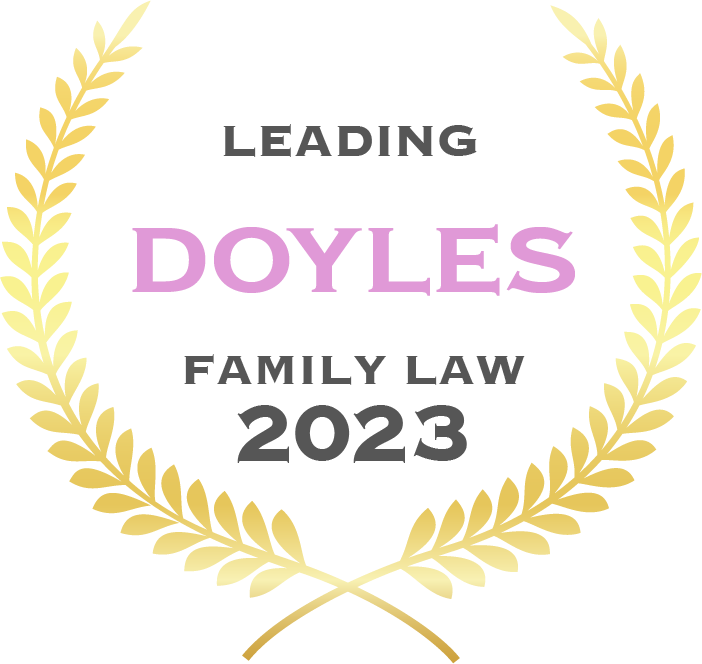People can start and grow their families through different fertility treatments. These include:
- Donor insemination (with a known or unknown donor) at home or at a clinic
- Invitro fertilization (IVF)
- Surrogacy
These can be complex processes, following strict legal requirements and having particular outcomes when it comes to considering who is a legal parent and the rights, if any, of a donor. However, with the right planning and information, it is a happy and great way to grow a family.
Who is a parent?
Each State and Territory have different laws about parentage.
In Victoria:
- A man who donates his sperm to a woman who is single or in a de facto relationship/married to another person is presumed NOT to be the father of any child born as a result – for all purposes.
- A woman who donates her egg (ovum) (whether inseminated by known or unknown sperm donor) to a woman who is single or in a de facto relationship/married to another person is presumed NOT to be the mother of any child born as a result – for all purposes.
- A woman who gives birth to a child (regardless of the genetic material used) will be presumed to be the mother of the child. If the woman is also married to or living with a man on a genuine domestic basis the time of conception of the embryo, the man will be presumed to be the father of the children.
- Women in a same-sex relationship who undertake IVF or at home donor insemination will both be legally recognised as parents (and recorded on a Birth Certificate as ‘mother’ and ‘parent’) if, and only if:
– They were living together on a genuine domestic basis at the time of the IVF or insemination; and
– The non-birth partner consented to the IVF or insemination procedure.
It is vital to get legal advice about the legal implications of any proposed reproductive treatment before any decisions are made.
What are the rights, if any, of a donor? What is a Donor Agreement?
Known sperm and egg donors have no rights to a child born as a result of an assisted reproductive treatment IF they are not involved in the child’s life or have a relationship with the child.
This means that a donor that has a relationship with that child may have rights to seek parenting orders in the Federal Circuit and Family Court of Australia (the Family Law Court) in the future.
It is therefore recommended that parties record their intentions when it comes to the role of the donor and the relationship, if any, that the donor is to have with the child. These are called Donor Agreements.
Donor Agreements are not legally enforceable or binding but ensures that all parties to an assisted reproductive treatment are on the same page at the start of the process. While things may change down the track, it is helpful to have these discussions and getting legal advice first.
What is surrogacy?
Surrogacy involves a female surrogate carrying an embryo to full term on behalf of the intended parent or parents if they are unable to have children.
There are two types of surrogacy arrangements:
- Gestational surrogacy is the most common where the surrogate is implanted with an embryo (made up of an egg of a donor or the intended parent and sperm from a donor or intended parent).
- Traditional surrogacy is where the surrogacy donates her eggs to conceive with sperm from a donor or the intended father.
Each State and Territory have their own laws around surrogacy and the requirements.
Currently in Victoria, Assisted Reproductive Treatment/IVF Clinics are not allowed to carry out treatments for traditional surrogacy. Traditional surrogacy therefore occurs with at home insemination.
What is a Parentage Order?
A Parentage Order either:
- Declares a person/persons as the legal parents of a child – to be recorded on the child’s Birth Certificate; or
- legally transfers the parentage from the surrogate (and her partner if any) to the intended parents.
A Parentage Order is sought in the relevant State or Territory. In Victoria, this is the County Court of Victoria.
There are strict requirements around entering into a surrogacy arrangement and how to transfer the parentage from the birth mother (and her husband or male partner) to the intended parents. Detailed information about how we can help with surrogacy arrangements can be found here.
Family law proceedings
If, for whatever reason, a Parentage Order is not a viable option or there is a dispute about a child, parties will need to consider whether they have grounds to issue proceedings in the Family Law Court.
How we can help
Our team provides tailored advice and representation in relation to Donor Agreements, surrogacy arrangements (both gestational and traditional) and any parenting proceedings in the Family Law Court in relation to a child born as a result of an assisted reproductive treatment.

